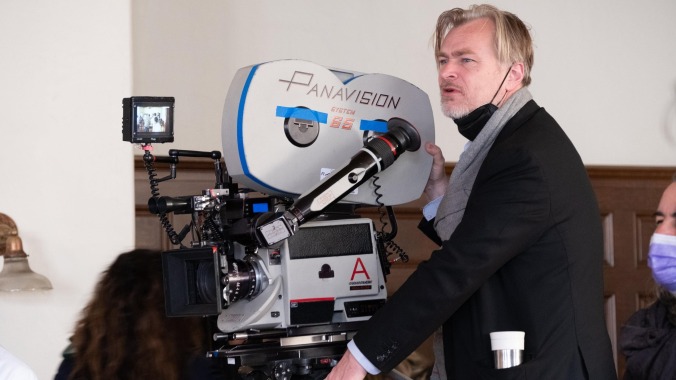Christopher Nolan feels studios are thinking about movies all wrong
We shouldn't be prioritizing plot and scale over a film's "audiovisual experience," according to the Oppenheimer director

Brace yourselves: another famous director has an opinion on Cinema-with-a-capital-C, something that always seems to send the internet into a full-bodied meltdown for some reason. It’s not like movies are their entire life and livelihood or anything!
Anyway, this time it’s Christopher Nolan, who has a little movie called Oppenheimer premiering this Friday. You may have heard of it. Nolan’s upcoming Barbie companion piece treatise on the devastation man has wrought on fellow man is not so little, of course. IMAX prints of the film stretch 11 miles (or, the distance between the Empire State Building and a KFC in the Bronx, per The A.V. Club’s Sam Barsanti), all of which is to say that there’s a lot of room in the film for “pure audiovisual experience,” something Nolan thinks modern cinema is in imminent danger of losing.
